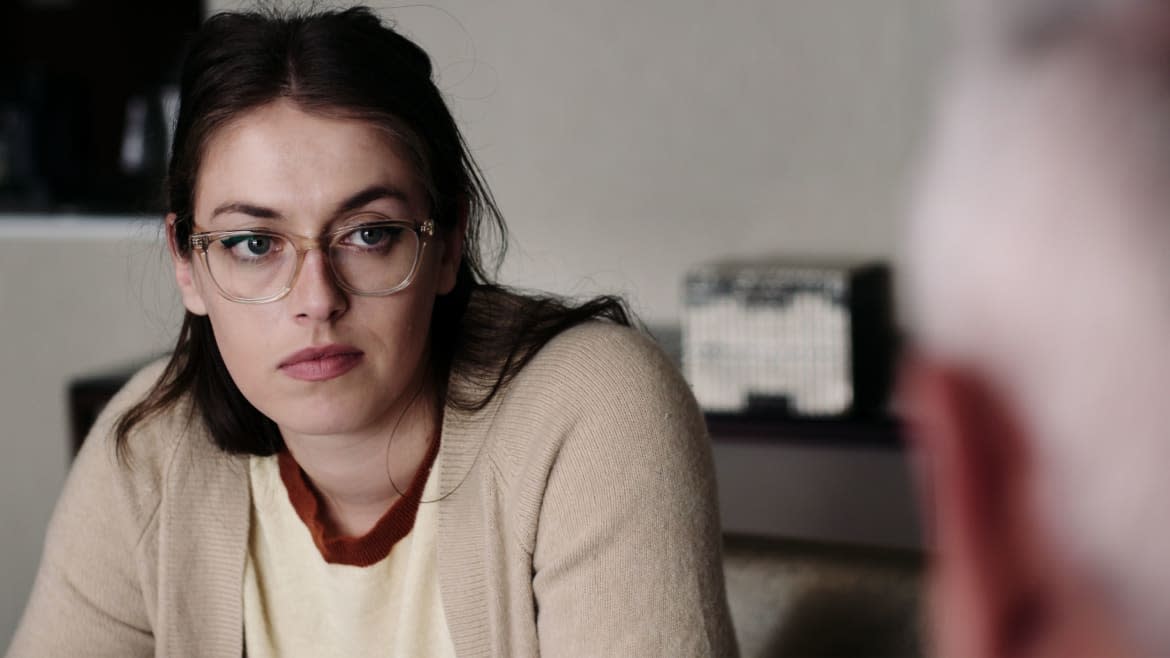Netflix Doc Exposes the Enraging Pattern of Turning Rape Victims Into Suspects

The #MeToo movement is about believing women when it comes to the prejudice and abuse they suffer, often with no consequences for the perpetrators. Unfortunately, Victim/Suspect indicates that, as far as that feminist crusade has come, there’s still a long way to go, especially with regards to the issue of rape and the police officers tasked with taking accusations seriously and treating victims fairly and compassionately.
A portrait of the tireless efforts of Rachel de Leon, a journalist working with The Center for Investigative Reporting, Victim/Suspect (May 23 on Netflix, following its premiere at January’s Sundance Film Festival) is a look at a troubling phenomenon: young women being charged with filing false rape reports, a crime that can result in penalties of up to a year in prison. Motivated by a few of those stories, de Leon sets about understanding how individuals claiming to have been violated wound up as targets of the very law enforcement officials they had sought for help. What she finds, as detailed by Nancy Schwartzman’s documentary, appears to be a widespread problem of biased and flawed interrogation tactics, all of them built upon a foundation of ugly sexism.
Victim/Suspect is a film about a police culture that doesn’t seem to take rape charges seriously—or, at the very least, doesn’t think that thoroughly examining accusations is worth the hassle when intimidation and humiliation will facilitate their jobs. De Leon’s sleuthing concentrates on a collection of young women who reported to local cops that they had been raped, but were soon handcuffed, fingerprinted, and vilified on TV news broadcasts and online Facebook pages as conniving frauds who were trying to ruin innocent men’s lives and, in the process, waste valuable public resources. What de Leon learned is that these cases of deception were actually unsettling examples of shoddy (if not deliberately reprehensible) behavior on the part of detectives.
De Leon’s curiosity was first piqued by the prosecution of Nikki Yovino, who claimed that two Sacred Heart University football players raped her in a bathroom. She was subsequently charged—in a national headline-making scandal—with making a false accusation, and faced one year in prison for her supposedly erroneous report and an additional five years behind bars for requesting a rape kit exam. De Leon quickly learned of an eerily similar tale in Tuscaloosa, Alabama, where Emma Mannion was facing a Class A misdemeanor charge for filing a false report that had to do with a sexual assault in a car at the hands of a man she casually knew. Both women now professed their innocence, even though they’d officially recanted their allegations—the crux of law enforcement’s case against them.

As made clear by the infamous 2006 Duke lacrosse case, there are legitimate instances of false rape accusations. Nonetheless, Victim/Suspect persuasively maintains that law enforcement also conducts itself in a highly questionable manner when faced with such contentions. For example, in the case of Mannion, law enforcement withheld video evidence that directly corroborated her narrative. Worse, in initial interrogation-room conversations with Mannion, they stated that they had security camera footage of her making out with her attacker and willingly getting into a car with him—an assertion that, once de Leon received said footage (via a lawsuit!), proved to be a complete and utter lie.
The most damning aspect of Victim/Suspect is the revelation that police officers are not only permitted in these circumstances to lie (which they refer to as “ruses”), but are encouraged to do so in order to gauge individuals’ reactions and elicit the truth. De Leon’s investigation suggests that officers thus create immediate doubt and fear in victims, especially if—due to excessive alcohol or the aftereffects of trauma—they don’t remember every detail of the assault in question. Schwartzman’s film argues that was the case with Megan Rondini, who in 2015 accused TJ Bunn Jr. (who hailed from a prominent local family) of rape, and was then charged with theft for taking cash from him for a post-assault taxi. Video from the interrogation room (the same one Mannion also found herself in) makes plain the stark difference between the cops’ handling of Rondini and Bunn Jr. In the aftermath of this ordeal, Rondini took her own life—citing the rape and cops’ bullying as the reasons.
The Sex Scandal That Shook a Texas Town Was All a Big Lie
Driven by de Leon’s reporting, Victim/Suspect lays out the many subtle ways in which cops convey to rape victims that they’re untrustworthy, confusing them with falsehoods and then citing “inconsistencies” that scare women (who are already reeling from their assaults) into passively recanting as a means of making the nightmare end—at which point they themselves are arrested. Of the 52 comparable cases that de Leon discovered, 35 mentioned “inconsistencies,” 32 victims recanted, and 15 women were arrested within 24 hours. What emerges is a pattern of transforming victims into criminals because it’s a quicker and easier method of closing cases. That Detective Walberto Cotto Jr. didn’t once question the men whom Yovino posited as her attackers—even though one had been accused of rape a month prior, which Cotto didn’t know about!—speaks damningly to officers’ priorities in these situations.
The saga of Dyanie Bermeo, a college student who was assaulted by a man posing as a cop during a traffic stop, and who was later arrested for making a false accusation—a conviction she eventually had overturned—bolsters Victim/Suspect’s position that misogynistic bias and laziness frequently compel cops to victim-blame. It’s clear that de Leon’s reporting is just an opening salvo in a fight that requires additional work; as she herself admits, part of the motivation for her inquiry was the dearth of serious journalism on the subject. Still, via the heartfelt testimonials of Mannion and Bermeo, as well as the commentary from experts such as Dr. Lisa Avalos and former San Diego Police Department officer Carl Hershman (the latter of whom now trains officers to properly interview victims), Schwartzman’s film provides depressing and damning insight into a system rigged in favor of those who should be under the harshest spotlight, and at the expense of those most in need.
Get the Daily Beast's biggest scoops and scandals delivered right to your inbox. Sign up now.
Stay informed and gain unlimited access to the Daily Beast's unmatched reporting. Subscribe now.

